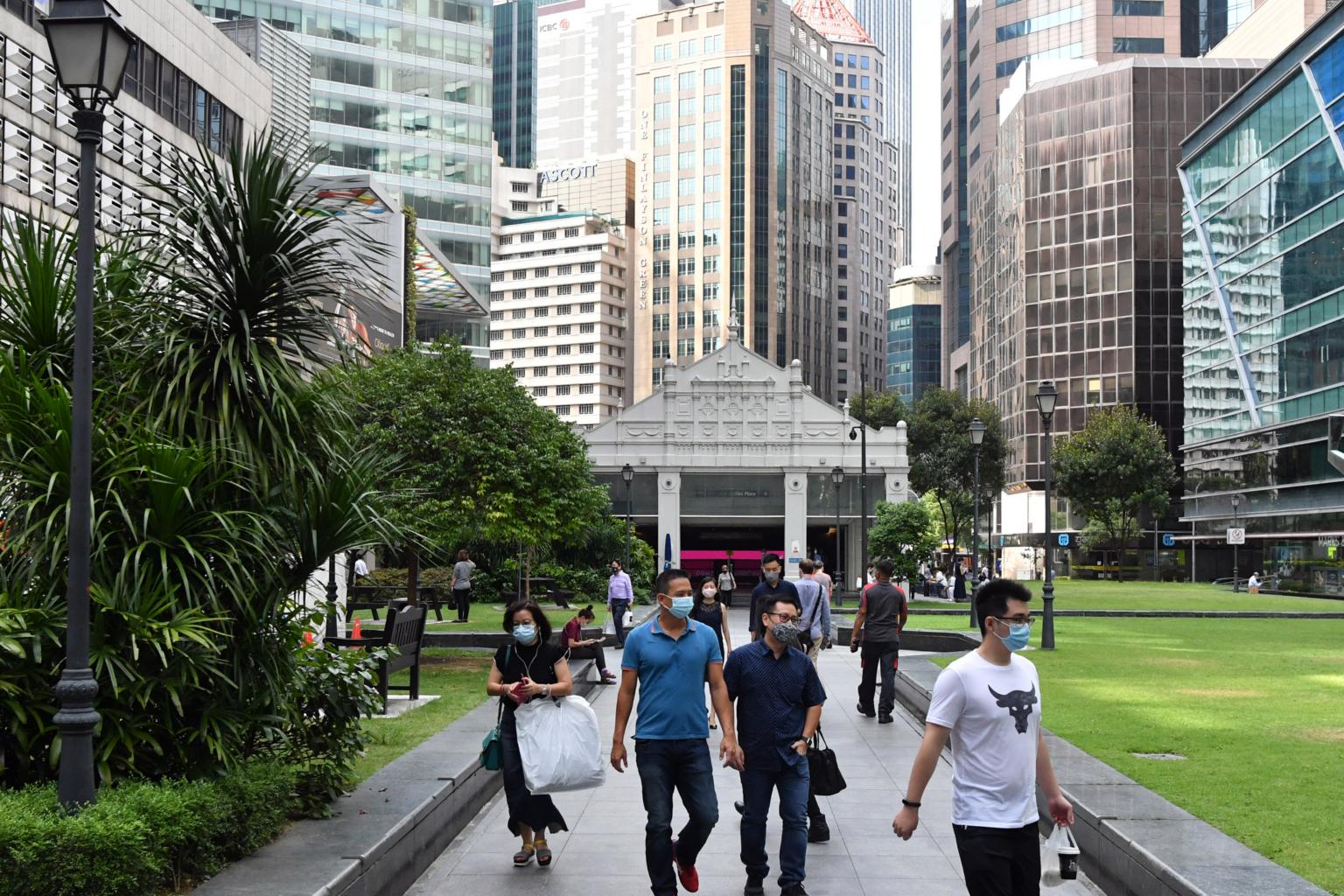New tripartite standard launched to boost work-life harmony in S'pore
Sign up now: Get ST's newsletters delivered to your inbox

The tripartite standard suggested employment practices to support workers' mental health needs and prevent burnout.
PHOTO: ST FILE
SINGAPORE - A new tripartite standard was launched on Monday (April 26), with several recommendations to give work-life harmony a boost here.
Employers were urged to make available schemes to support their workers, from family days and subsidised health screening to staff recreation areas, to further promote work-life balance at the workplace.
Arrangements to suit those with caregiving responsibilities, such as allowing them to telecommute, offering additional leave or having staggered times for starting and finishing work were also encouraged.
The Tripartite Standard on Work-Life Harmony was developed by the Ministry of Manpower, National Trades Union Congress (NTUC) and Singapore National Employers Federation (SNEF), in response to recommendations by the Citizens' Panel on Work-Life Harmony.
Part of the larger Singapore Together movement launched by the fourth-generation leadership team in June 2019 to involve citizens more widely in shaping policies, the panel deliberated on issues such as flexible working arrangements and proposed ways to boost work-life harmony, including a more supportive workplace culture. The panel included employers, workers, housewives and retirees.
Minister of State for Manpower Gan Siow Huang said on Monday that there was a need to look at how employers and their workers could be better supported on the work-life harmony front.
"In this new normal, Singaporeans are becoming more used to hybrid work, but are also increasingly concerned about the blurring of work-life boundaries, and hope to be able to juggle work and personal commitments better," she noted.
Ms Gan acknowledged the varied needs of employees and employers across job roles and life stages.
The tripartite standard suggested other employment practices, including having companies establish and communicate their work-life harmony policy to support workers' mental health needs and prevent burnout.
They were encouraged to appoint a senior management member to champion work-life harmony, offer employees enhanced leave benefits such as extended childcare leave, and review the effectiveness of their work-life programmes through regular surveys or focus group discussions.
Employers were also advised to adopt the earlier Tripartite Standard on Flexible Work Arrangements, launched in 2017 to get them to offer more flexi-work options such as choosing when to start and finish work.
The Public Service Division would study the recommended employment practices "with a view towards adoption by public sector agencies", said the tripartite partners in a joint release.
To help companies take the first step in adopting the new standard, the Tripartite Alliance for Fair and Progressive Employment Practices will conduct clinics and workshops.
Ms Yeo Wan Ling, director of the NTUC's small and medium-sized enterprise arm U SME as well as its women and family unit, encouraged progressive employers to consider how the concept of work-life harmony applied to men.
"It is crucial that men contribute to caregiving needs in the family so that at the end of the day, both women and men alike experience work-life harmony," she said.
SNEF council member Bicky Bhangu noted that nearly four in five, or 78 per cent of, employers implemented at least one formal type of flexible work arrangement last year, up from about half, or 53 per cent, in 2019. This was partly due to the need to maintain safe operations during the pandemic.
The launch of the tripartite standard was timely, he said.
"The key is for the standards to be flexible enough for employers to implement work-life practices that take care of the varying needs and well-being of employees. Getting this right can help to improve employee engagement and productivity."


